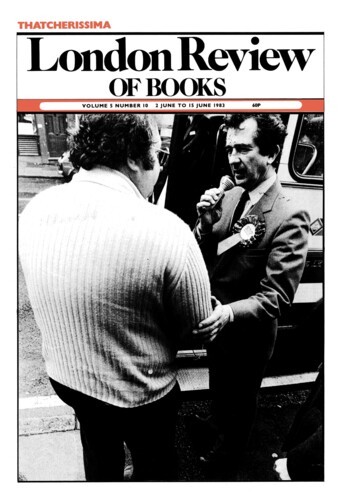1
What a picture!
She has tucked her wild-looking chicken
under her arm and stares out
over what seems to be a mountain pass
on a windy day.
She is wearing a blue linen dress
the colour of summer.
She reminds me of Brünnhilde –
alone, bronzed, unfamiliar.
She doesn’t look like anybody’s mother.
2
She used to love dancing.
She went to the Chelsea Ball
dressed as a leopard;
there she met my father,
who looked so dashing
in the Harlequin suit
his tailor made for him
from raw silk.
He had tiny shoes
like Cinderella’s.
I have seen them.
3
She comes to collect me from school,
on time, silent,
and I hand her my coat and satchel –
avoiding, even then, her lovely eyes,
that look down on my world
like distant stars.
I play with the girl next door,
and don’t come home till bedtime.
4
From the lighted window
I watch my mother
picking leeks in the twilight.
I will have soup
for my supper,
sprinkled with parsley.
She passes me my creamy bowl.
My hands are warm,
and smell of soap.
My mother’s hands are cold as roots.
She shuts up the chickens
by moonlight.
5
How can they think I am asleep
when he bends down and kisses
the nape of her neck,
and goes away to his own room,
while she sits in front of her mirror
and brushes and brushes
her waist-long silver hair?
6
The hens are all gone.
How happy she used to be
setting out in her long tweed coat
across the orchard
with her bucket.
Chuck, chuck, chuck, she called
and they’d all come running.
7
She walks behind the hedges
of the large garden, stooping
from time to time
to pick narcissi
for her mother’s grave,
now that it is Easter.
We don’t want to go.
We’re too young to remember
our grandmother –
and besides it will be cold
in the graveyard
where the wind blows
straight in off the downs.
8
He went to his room with an orange
in his hand, and died there
sometime during the afternoon.
My mother spent the day in the kitchen.
When I came in from the garden
I was sent upstairs
to call him down to tea:
he was sitting by the window
with his back to me.
On the table beside him
were four boats made of orange peel,
with the pith piled neatly inside them.
My mother couldn’t stand up.
‘It must be the shock,’ she said.
It wasn’t grief.
‘Come and sit down,’ she said,
‘and have your tea.’
9
Tonight I kissed my mother,
for the first time that I can remember;
though I must have kissed her before,
as all daughters kiss their mothers.
She was passing in front of me
to kiss the children, and I leant down
and touched her cheek with my lips.
It was easy – like the lighting of a candle.
10
My sister always says
that on the morning our father died
he was working on a drawing of a liner
disappearing over a white horizon.
She says it is a symbol.
She’s got the picture by her bed.
I would rather think of dying
as a coming into harbour,
a sort of final mooring.
11
You put in at a little jetty.
There is someone there to welcome you –
not sinister – but rather surprising –
someone you know. In front of you rise
banks of fern and shining celandines.
You can smell the woods.
They are full of life,
but very still.
12
My mother and I, in our way,
understand one another.
When I kneel by her grave,
in need of a little consolation,
I will picture her standing
on a hillside in bright sunlight,
lifting her hand to wave to me;
or is she brushing away the feathers
that drift like dreams into her hair
and tickle her cheek, till she smiles.
Send Letters To:
The Editor
London Review of Books,
28 Little Russell Street
London, WC1A 2HN
letters@lrb.co.uk
Please include name, address, and a telephone number.

